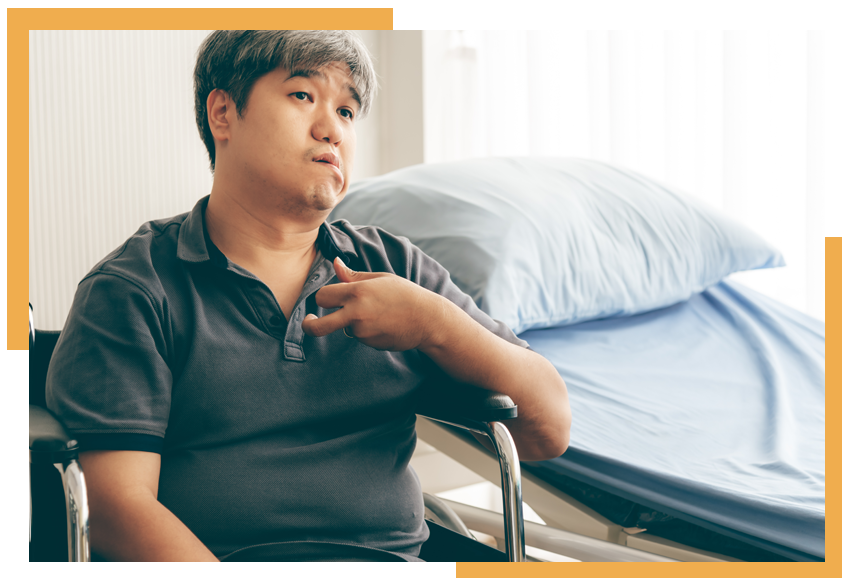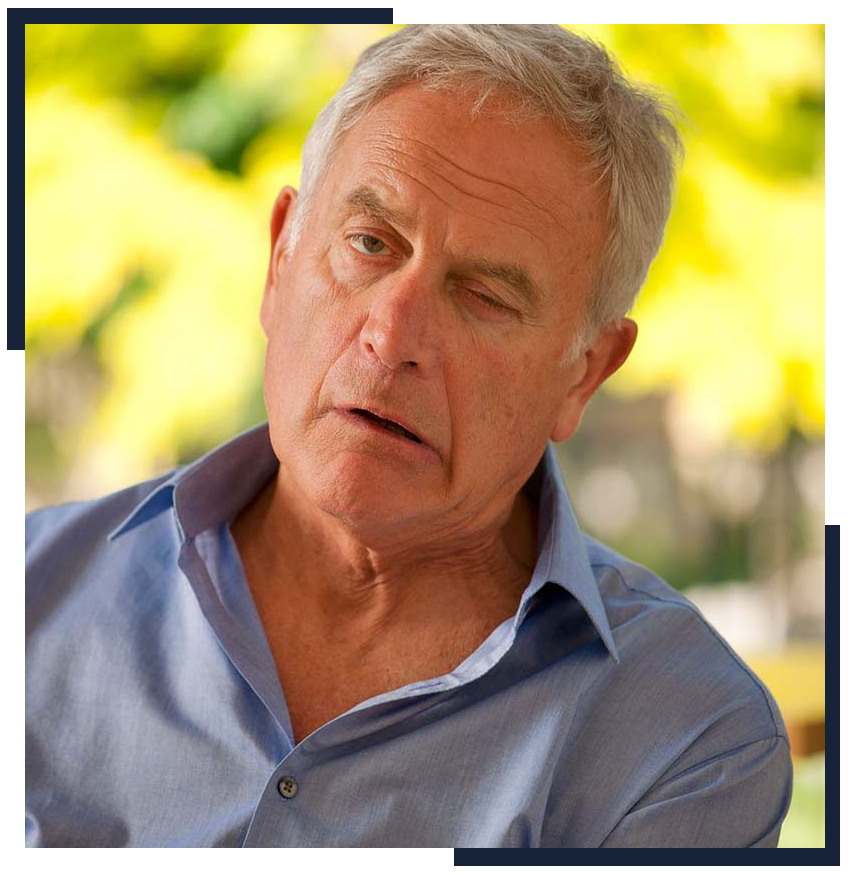Stroke Therapy
According to Johns Hopkins Medicine, more people are now surviving the initial stroke. However, most survivors get disabilities that could have been minimized if they had received therapy early. Intensive occupational and physical therapy can improve function and reduce long-term disability for stroke patients.
Call us: 469-489-5217
What is Stroke?
A stroke occurs due to an interruption of blood circulation to the brain or part of it, preventing vital nutrients and oxygen to the brain. It can also result from rupture of the brain in the brain. Restriction of blood to the brain then causes cells in the brain to die and, as a result, brain damage.
Why Should You Seek Early Assistance
Brain cells can die within minutes. Therefore, brain damage can occur within a short time. This small window makes it crucial for us to reach out to get quick treatment and increase the chances of a full recovery. If you’re with someone you suspect is having a stroke, carefully watch the person while calling for emergency assistance.

Schedule an appointment today
to see why our family of stroke experts can help you and your family on your path to independence.
Common Symptoms of Stroke
Before we look at the symptoms, it is important to mention that factors can predispose you to stroke. These include:
- Hypertension
- Obesity
- Diabetes
- Use of tobacco
- Alcoholism
- High cholesterol levels in the blood (hypercholesterolemia)
FAST is a simple way to remember the main symptoms of a stroke. Recognizing these symptoms allows you to get medical help as soon as possible.
- Face drooping
- Arm and leg weakness
- Speech difficulty
- Time to call 911
Types of Stroke
Hemorrhagic Stroke
It occurs when the blood vessels in the brain leak or rupture. The blood damages other brain cells as it presses through. Some of the most common types of hemorrhagic stroke are:
- Intracerebral hemorrhage stroke: bleeding occurs inside the brain.
- Subarachnoid hemorrhage stroke: bleeding occurs between the brain and its membrane.
Ischemic Stroke
The most common. According to the Center for Disease Control (CDC), more than 85% of all strokes in the United States are Ischemic. It occurs when the blood vessels in the brain become narrowed or blocked, causing severely reduced blood flow (ischemia). The condition is also called cerebral ischemia. The primary causes of ischemic stroke are blood clots or narrowing of the arteries due to atherosclerosis.
Transient Ischemic Attack (TIA)
It is considered a mini-stroke. TIAs don’t typically cause permanent damage. The condition is characterized by a decrease in blood supply to part of the brain for a short amount of time. Knowing stroke risk factors and working towards a healthy lifestyle are the best steps anybody can take to prevent a stroke or a second stroke.
Stroke Management
We understand the desire to gain some level of independence for stroke patients. Therefore, we have developed an improvement regimen to regain strength to walk, talk, feed, or do other basic activities. We assess our patients on a case-by-case basis to create customized activities that fit the type and severity of the stroke.
One Neuro Parkinson's Program
There are multiple rehabilitation programs for patients that have suffered a stroke. These programs include acute rehabilitation, usually 3+ hours of therapy for five days/week in the hospital. Also, there is subacute or skilled nursing rehabilitation, where 1-2+ hours of treatment are provided five days/week. Then, there is outpatient rehabilitation, which the One Neuro Stroke Program falls under.
Outpatient rehabilitation is when the patient lives at home and travels 2-3x/week to the facility for 1-3 hours of treatment. We offer complimentary ride services for patients in this program. We understand the difficulty for patients and their families to coordinate multiple visits a week. OneRehab understands the benefit of accessing the equipment & technology in our facility; that is why we offer these services to best support the patient’s recovery.
OneRehab Stroke Therapy Activities
Mobility Aid Training
The condition affects movement and can also lead to regular muscle stiffness. These effects can call for mobility aid like wheelchairs, crutches, canes, walkers, or braces. Learning how to use aids properly is important. Our therapists walk you through the proper way of handling your assistive devices so that you can better your gait and start your path to independence.
Constraint-induced Movement Therapy
This stroke therapy is used when there is one affected limb and one un-affected limb. Our therapists constrain the unaffected limb to increase the use of the weak limb. Through this therapy, we can reduce the effects of the dormancy of the unused limb. CIMT increases blood supply to the affected part, consequently improving its use.
Robotic Technology
The use of technology in physiotherapy is gaining popularity. Through artificial intelligence, it is possible to create a targeted treatment for patients. Using robotics can assist patients with repetitive motions. Patients can re-establish communication between the damaged parts of the brain and the body, which is crucial in stroke rehabilitation.
Virtual Reality
You can use fun activities to improve your health. OneRehab uses games to help you manage stroke through repetitive activities targeting specific parts. We use virtual reality to make your rehabilitation journey much more enjoyable. The games used are rehabilitative and can help you attain your goals while enjoying the process.
Cognitive Therapy
Speech and occupational therapy help patients with difficulties processing, problem-solving, judgment, and safety awareness.

Physical Therapy for Stroke Patients
Our physical therapy services can help you strengthen your body and recommend assistive devices tailored to your needs. We train you to use the devices such as canes, crutches, or wheelchairs.
Neurologic Clinical Specialist Physical Therapists: a neurologic clinical specialist is a licensed physical therapist who has completed 2000+ hours working with individuals who have neurologic dysfunction in a clinical setting. They must complete what is known as the most challenging exam for physical therapists in the Neurologic Clinical Specialist Examination. Our therapists have undergone extensive training and testing for neurological disorders. We ensure that patients with stroke and brain injuries receive the best care from our highly qualified clinicians for the best outcome.
Occupational Therapy Stroke Intervention
Our occupational therapists work to help you gain back your independence. We create unique techniques to improve your ability to do daily tasks such as cooking, walking, dressing, and personal hygiene.
Medical Therapeutic Yoga: along with being the top therapists in treating patients with neurological disorders, OneRehab is proud to be home to 1 of 9 Registered Medical Yoga Therapists in Texas. According to a study published online in the journal Stroke, adding yoga to stroke rehabilitation may improve recovery. The benefits mentioned in the study were improved balance, enhanced quality of life, reduced fear of falling, and better independence with daily activities.
Speech Therapy
Our speech-language pathologists provide rehabilitation to maximize the ability of stroke or traumatic brain injury patients. Our therapy improves and manages cognitive function, language, and swallowing difficulties.
Certified Brain Injury Specialists: A certified brain injury specialist is a licensed therapist who has completed 500+ hours of clinical experience with brain-injury patients. Becoming a CBIS allows our therapists to be the most qualified in cognitive rehabilitation, language, and swallowing difficulties. A CBIS has an extensive understanding of the innovative techniques used to maximize these abilities in patients with stroke and traumatic brain injury.
Psychologists
Neuropsychologists specialize in the relationship between the brain and behavior. Neuropsychological testing is essential to evaluate a patient’s cognitive, emotional, intellectual, and academic skills. They assist in identifying the problematic cognitive and emotional skills for the best psychotherapy treatment .
Case Managers/Patient Care Specialists
Case managers and patient care specialists act as a go-to resource for the family and loved ones involved in your care. From educating on different resources to communicating with your insurance provider, they are there to help.
Management / Treatment
After emergency treatment, the focus shifts to recovering as much function as possible for more independence. The resulting impact of the stroke is dependent on which part of the brain was involved and the number of cells damaged. Patient’s who get strokes often progress into more and more extensive rehabilitation.
Factors that Affect Success of Stroke Therapy
- The severity of stroke.
- Stroke survivor’s outlook/frame of mind.
- Family support.
- Time until the start of rehab.
- Rehabilitation must begin as soon as possible after the stroke.
OneRehab | Richardson
1761 International Pkwy Suite 135, Richardson, TX 75081, United States
OneRehab | Dallas
6080 N Central Expy #125 Dallas, TX 75206
Email Us
info@onerehab.com
Call Us
972 845 7875
Working Hours
M - F 7:00 AM – 7:00 PM
Sat 8:00 AM – 2:00 PM


